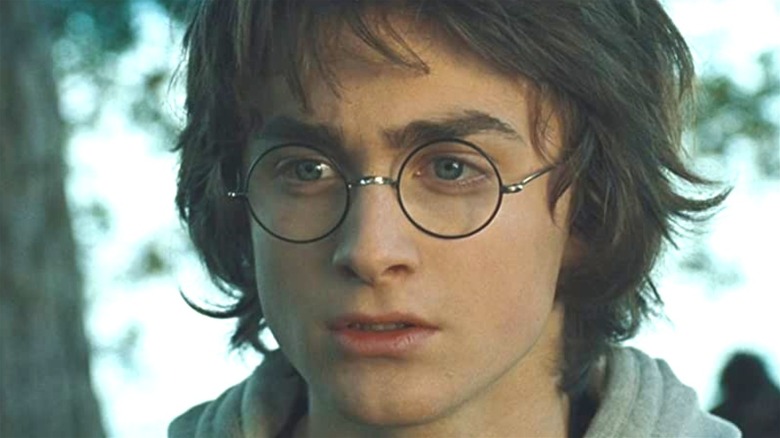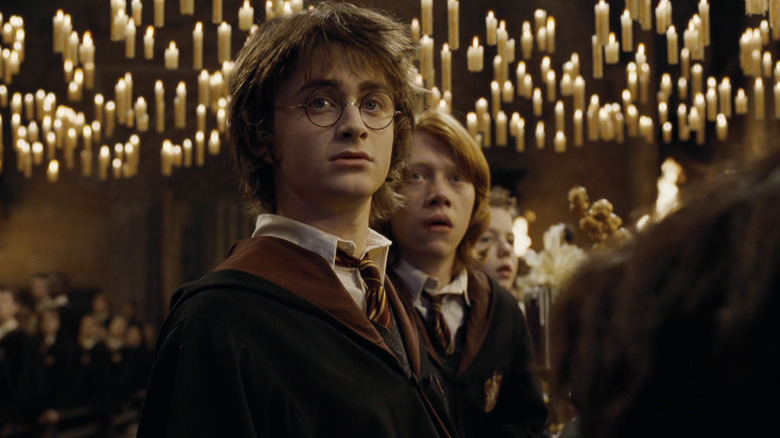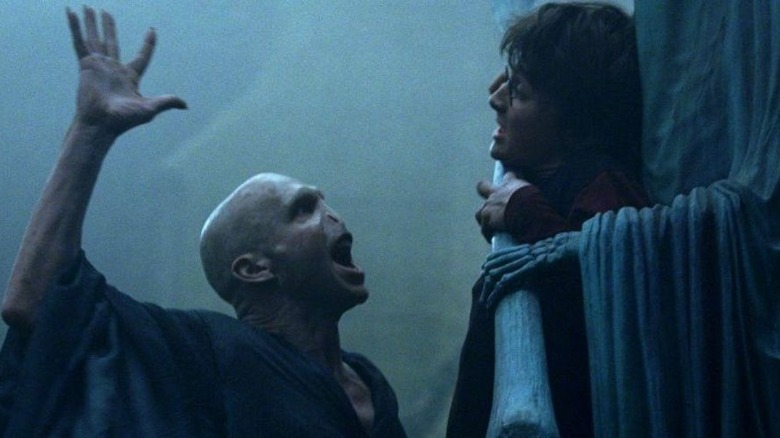The Ending Of Harry Potter And The Goblet Of Fire Explained
"Harry Potter and the Goblet of Fire" is the fourth entry in the "Harry Potter" film franchise. Released in 2005, the film takes place during Harry Potter's fourth year at Hogwarts School of Witchcraft and Wizardry and chronicles his struggles while competing in Hogwarts' traditional Triwizard Tournament, a competition between the wizarding world's three greatest schools. The tournament pits each student body's best and brightest against each other in various life-threatening challenges.
While the tournament is strictly for those above the age of 17, the 14-year-old Harry's year is thrown into chaos when he is mysteriously chosen as a competitor against his will. From there on, Harry must face the trials of the Triwizard Tournament by himself. However, these events are once again confused when a new threat presents itself in the final round of the tournament.
Despite these events' humble introduction as a friendly competition between magical schools, the events of "Goblet of Fire" and its conclusion are critical to the development of "Harry Potter" as a whole. After this movie, nothing about the series is quite the same.
Goblet of Fire is a franchise turning point
"Goblet of Fire's" ending ranks as one of the most important finales in the entire franchise simply because it marks a turning point for the whole series. This is the moment when Voldemort returns after years of seclusion. It becomes clear that the world of "Harry Potter" is about to expand massively beyond the bounds of Hogwarts and the dreary prison of Privet Drive. Voldemort is a threat to everybody, not just Harry and his classmates, and the unfortunate reality is that Harry is the only person who knows beyond a shadow of a doubt that the Dark Lord has returned.
From here on, Harry's actions will influence the entire wizarding world. His goals begin to shift from passing classes and getting into trouble to stopping Voldemort from taking over the entire world. As a result, both Harry and the viewers start getting exposed to things they only tangentially knew about before. Suddenly, the Ministry of Magic is just as important of an organization as Hogwarts, and the confusing realm of magical politics begins to encroach on a series that, until now, stayed blissfully unaware of such things.
This fundamental shift in the series' tone didn't happen overnight. There are hints of it throughout the series, but after Voldemort returns, they become front and center. By the time "Goblet of Fire" is over, Harry and his friends have matured greatly, whether they wanted to or not.
Harry rapidly becomes more adult
In the previous three films, it's clear that Harry, Ron, and Hermoine are still portrayed largely as children. However, throughout "Goblet of Fire," the group begins to take on more adult challenges. Many of these are pretty standard benchmarks of maturity that most people go through. They look older, they are exposed to the bliss and woes of romance, and they watch the world's most evil wizard brutally murder a classmate in front of their eyes — you know, the things most people experience before they graduate high school.
"I think the show is sort of how they're growing up," Rupert Grint said in an interview with Hollywood.com. "They're like teenagers now. Obviously Ron, he has his sort of moody moments, like when he had a few arguments."
This jump in maturity is also reflected in the Triwizard Tournament, an event that is supposed to be restricted to those aged 17 and up. Harry's involvement in the competition, whether it was against the rules or not, signifies the character's growth as a person. Furthermore, the plotlines that follow the Triwizard Tournament in the ensuing films place Harry in more and more "adult" scenarios, including his interactions with the Ministry of Magic and his fight against Voldemort. None of this would be possible if it weren't for the events at the end of "Goblet of Fire."


